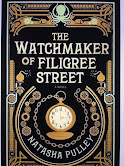He said, she exclaimed or Rules, what rules?
By Theresa Gauthier
Word on Writing
The one thing we have in surplus on this planet is opinions. Writers are no exception. There are so many who want to tell you what you can and can’t do, who claim they know the rules for writing. There really is only one rule to remember.
Rule number 1: There are no rules.
Rule number 2: Make your own rules.
In writing, the rules change depending on who and when you ask. Case in point—and this one really bothers me—I know a lot of writers who love to tell me that I should only use “said” in dialogue tags.
These people are militaristic about it. They read through the pages of a manuscript and pounce on any other word you might use and then launch into a 10 minute explanation on why “said” is the only choice and every other word is wrong.
I do admit that dialogue tags should be invisible. You shouldn’t notice them. They are there only so you know which character said what. They aren’t there to explain how the character feels. The reader should know from other things you’ve included—descriptions, facial expressions, the dialogue itself—and the dialogue tags shouldn’t slow down the reading.
Like any other word, it can be repeated a bit too often. Naysayers will tell you that in this one instance the repetition doesn’t matter.
It does matter the minute you’ve noticed it.
If you use the word “said” to the exclusion of all other words, it will become noticeable. It’s inevitable. Read through the pages and see for yourself. Being hit over the head with any word will make you seem like an amateur and will snap your reader right out of the world you’ve created. Then you might lose the reader. They’ll put down your book and maybe they won’t pick it up again.
Read your pages yourself. If you notice the word, if it jumps off the page and shouts at you, you need to replace it. I’m not advising you to use strange words, but there are options. (Note: This is not an exhaustive list of ways to write this.)
Option 1:
“I’ve been looking for you,” he said.
Option 2:
“I’ve been looking for you.” Jack was breathless as he caught up to her.
Option 3:
“I’ve been looking for you,” Jack shouted as he took hold of her arm.
Option 4:
“I’ve been looking for you,” he admitted.
None of these are wrong in and of themselves. If you’re not sure which to use, reread your pages and see which is the most invisible in the context of the rest of your manuscript.
Another rule that really doesn’t apply: Never use adverbs.
With one short sentence, a large percentage of vocabulary is eliminated.
I’ve always had a problem with rules that being with “Never” or “Always” because I don’t think there is anything in writing (or in life for that matter) that falls under those categories. For each time a writer is told “never” or “always” you can find a successful example of the exact point that worked well in some published book somewhere.
We are crafting stories. To eliminate a large part of the only tools a writer uses—words—is to hobble that writer.
Adverbs are tricky. Often when you use one, if you give your sentence some thought, there’s another way to say what you’re saying without the adverb. If you try to rewrite the sentence and can’t quite capture the essence of what you’re trying to say without the adverb, then use it. Don’t stress about it. Sometimes an adverb is the best word for the job.
Rules may seem as though they are immutable, written in stone, and there are many who will crack the grammar whip and tell you you’re doing it wrong, but rules in writing are guidelines. They are general. If you wait ten years, one of the rules you live by (er—by which you live) will be turned on its ear and you will be told to do the opposite under pain of ridicule.
Don’t get stuck into any sort of debate. Write the story you want to write. If that includes adverbs, fine. If that includes a dialogue tag that uses a word other than “said” that’s fine, too.
I sometimes use “taboo” words (adverbs, ending a sentence in a preposition, starting a sentence with a conjunction, sentence fragments, etc.) in dialogue. Regardless of the rules for writing, people all speak with a different level of adherence to grammatical rules. If you have a reason for your characters to say something “wrong” then by all means, allow your characters to say what they want to say.
Word choice shouldn’t worry you so much that you can’t write your story. Your first draft is for you to get the story down on paper whether that’s actual paper or digital paper. You can worry about changing up word choice and differentiating the speech of each of your characters later.
The important thing is to keep writing. If the scene needs a rewrite later, you can change it any time you like. Your story, like the rules for writing, isn’t written in stone.







Comments
Post a Comment